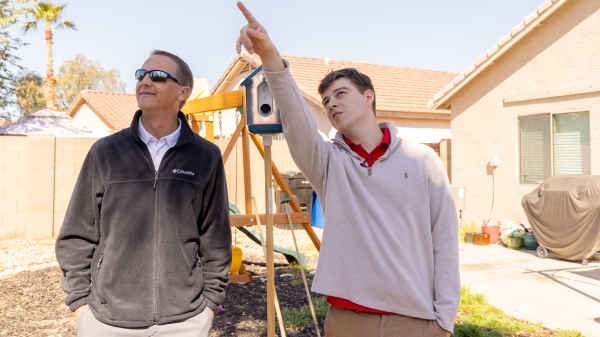New support group aims to prevent postpartum depression and stress
ASU Clinical Psychology Center to offer support group for expectant mothers

Becoming a new mother can be exciting, but it is also one of the most stressful and vulnerable times in the lives of many women. It is estimated that as many as 85% of new moms experience some form of postpartum depressive symptoms, and a large number go on to experience clinical levels of depressive symptoms.
Starting February 21, 2020, the Clinical Psychology Center in the Arizona State University Department of Psychology will launch a new support group for expectant mothers. This group will be open to members of the community, and ASU staff, students and alumni.
The goal of the support group is to prevent postpartum depression and stress following birth.
Postpartum depression is often confused with “baby blues,” which are normal mood swings that happen during the week or two after the baby is born. Baby blues can include anxiety, irritability or trouble sleeping, but postpartum depression is more severe and can last up to a year after the birth and include symptoms like withdrawing from family, excessive crying or feelings of worthlessness or shame.
“The arrival of a new baby is filled with a lot of new stressors. Even though it is an exciting time, there are a lot of changes that come with pregnancy. There are body changes, emotional changes and life transitions,” said Sarah Curci, a clinical psychology graduate student who will run the group.
The support group will provide a way for expectant mothers to think about the transitions that accompany a new baby and to learn coping strategies. The ASU Clinical Psychology Center has three goals for the group: teach better stress-management tools, increase attachment with the expected baby and leverage existing support networks in the participants’ lives. This program has been demonstrated to reduce depressive symptoms, prevent new cases of major depression and improve mood management.
“This group is designed to provide moms a space to talk about things that can be stigmatized or are otherwise not socially acknowledged, despite being quite common,” said Austin Blake, a clinical psychology graduate student who will work with Curci to run the group.
The new group will allow pregnant women to have a space where they can feel validated in their own experiences and learn from other women who are going through similar things.
“It is a really normal experience to feel stressed during this time, and another goal we have is to help participants realize that it is normal to feel unprepared or like that they aren’t doing a good job,” Blake said.
Group details
The program meets two hours a week for six weeks, and each session is $15. The groups will be led by ASU clinical psychology doctoral students and will be supervised by a licensed clinical psychologist at the Clinical Psychology Center, 1100 E. University Drive in Tempe. For more information, please call the ASU Clinical Psychology Center at 480-965-7296.
Top photo: Camylla Battani, Unsplash.com
More Science and technology

Making magic happen: Engineering and designing theme parks
The themed entertainment industry is widespread and diverse, encompassing everything from theme parks to aquariums, zoos, water parks, museums and more. The Theme Park Engineering and Design…

AI-equipped feeders allow ASU Online students to study bird behavior remotely
ASU Online students are participating in a research opportunity that's for the birds — literally. Online Bird Buddies is a project that allows students to observe birds remotely, using bird feeders…

National Humanities Center renews partnership with Lincoln Center for responsible AI research
The National Humanities Center has announced that Arizona State University's Lincoln Center for Applied Ethics is one of four organizations to receive funding for the second phase of their…